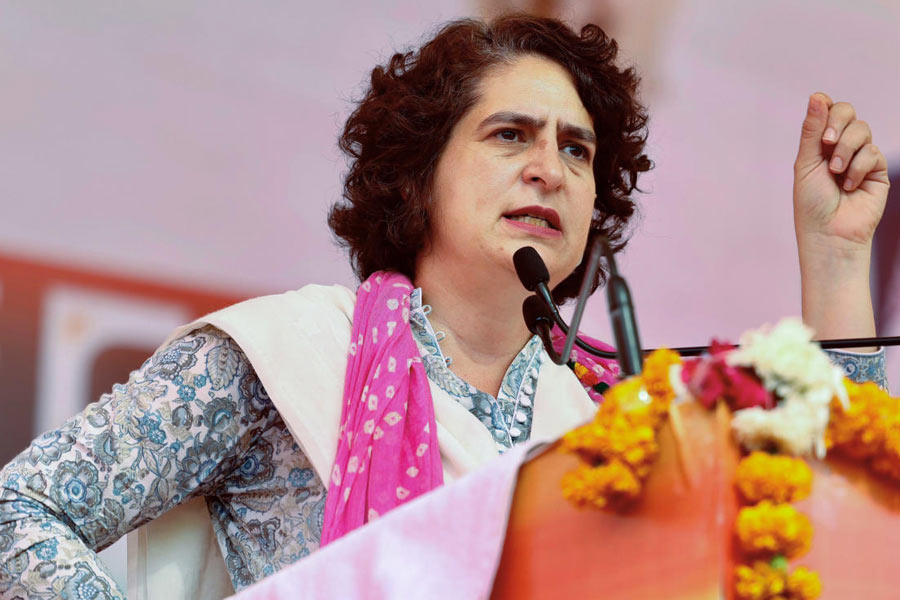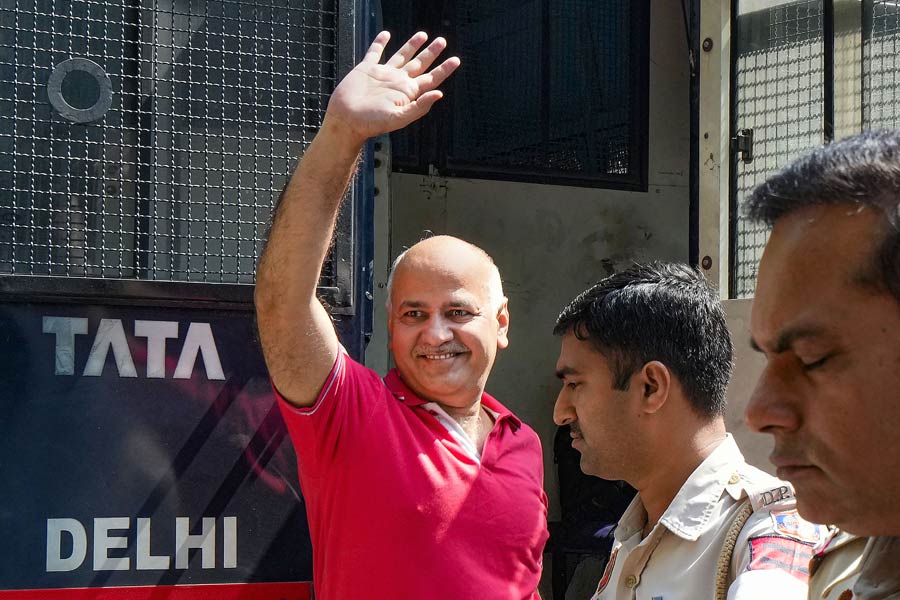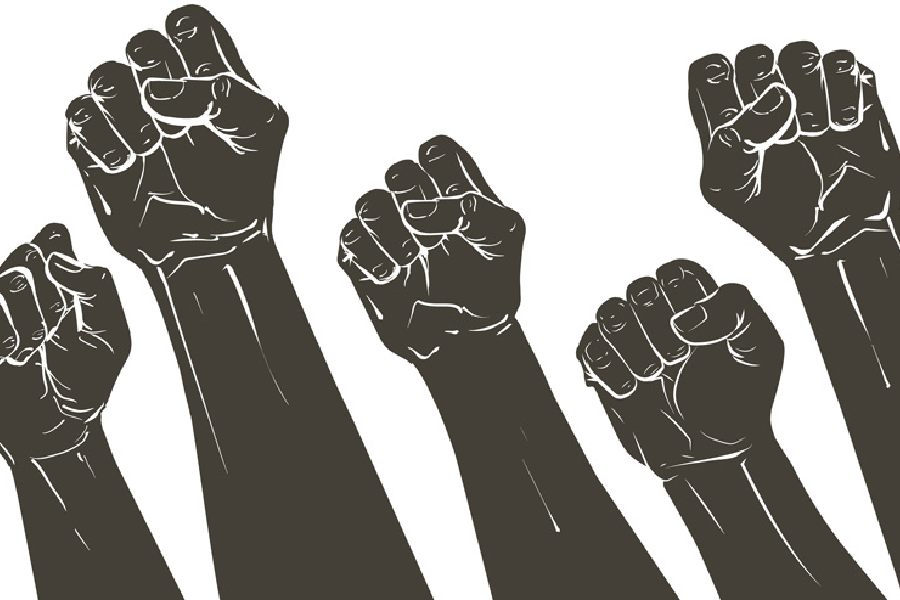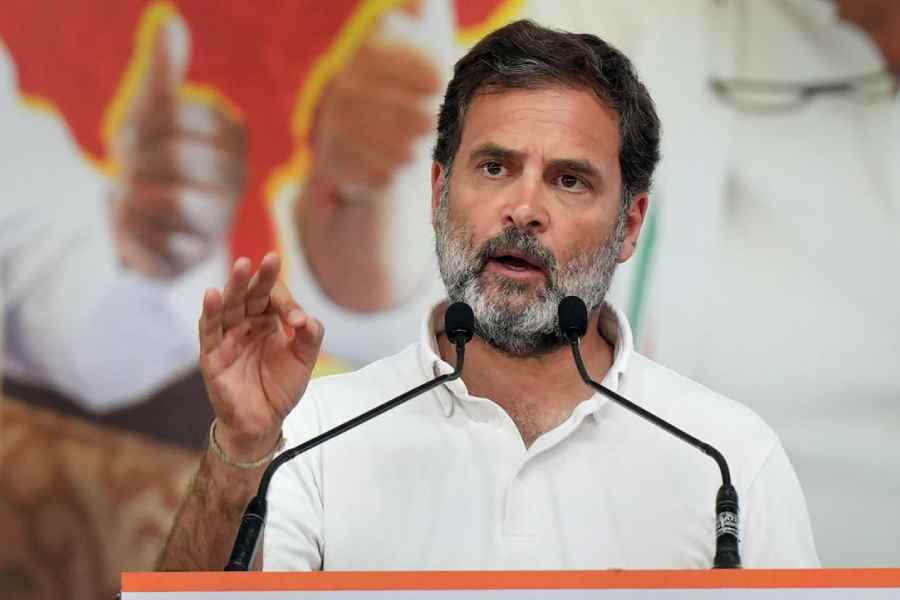
Thinking necessarily involves asking questions. To each question asked there are always several possible answers, and different persons asking the question lean, to start with, towards different answers. Over time, based on the accumulation of evidence and experience, society comes to accept some answers and reject others, and thus moves forward in the realm of knowledge. But at any moment in a thinking society, there is always a multiplicity of views on every subject. This, far from being a cause for alarm, is the hallmark of a thinking society.
Preventing such a multiplicity of views is ipso facto an assault on thought. Or, put differently, tolerating dissent is a sheer condition for the existence of a thinking society, quite independent of the truth-potential of any of the prevailing views.
The suppression of dissent, by the government led by the Bharatiya Janata Party, and by the various front organizations and "fraternal" Hindutva outfits of that party, in the name of "nationalism" of the kind which it espouses, is nothing less therefore than an assault on thought itself. This suppression is most clearly evident in the attacks on centres of educational and creative excellence in the country, like Jawaharlal Nehru University, University of Hyderabad, the Film and Television Institute of India, Jadavpur University, and the Fine Arts faculty of the M.S. University of Baroda. But it is also evident in the entire attitude of this government towards students.
Several Union ministers have said that students should just "study" and not be concerned with "politics". Now, the essence of politics is the presentation before society of alternative views about itself. To say that students, who should constitute that segment of society which is most intensely engaged in thinking, and hence holding, presenting and debating alternative views of society, should not engage in politics, amounts therefore to saying that they should abjure thinking. Their "study", in other words, should be devoid of thinking; it should consist rather in their imbibing capsules called "knowledge" during the teaching hours, and regurgitating them during examinations, or, at the most, acquiring some skills while eschewing all thought.
This attitude which permeates the BJP is extremely dangerous for a number of reasons. First, since no society can exist without thought, any society that abjures thought becomes in effect parasitical on others for its ideas. It asks in effect to be intellectually hegemonized by other societies, notably by advanced capitalist societies. The capsules called "knowledge" which students are being exhorted to imbibe when they are asked merely to "study" and to shun "politics", are necessarily those manufactured abroad in the advanced capitalist countries.
Intellectual hegemony, however, is the precursor to other forms of hegemony, just as the struggle against intellectual hegemony is a condition for the struggle against other forms of hegemony. Indeed, India's anti-colonial struggle had been sustained by an extraordinary efflorescence of ideas that had occurred in the country in diverse spheres, emanating from thinkers ranging from Naoroji, Periyar, Narayana Guru, Tagore, Gandhi, Ambedkar, and Nehru to Satyen Bose and Prasanta Mahalanobis. The current assault on thought therefore clears the ground for the country being hegemonized by advanced capitalist countries, not just intellectually but in other spheres too. Ironically, this assault on thought which threatens to undermine the independence of the nation is being justified in the name of "nationalism".
The second reason why this assault on thought is dangerous is that it helps to preserve the status quo. Karl Marx had once famously said that while bees could create structures that would put many an architect to shame, the difference between the worst architect and the bee consisted in the fact that the architect first created the structure in the mind before creating it in reality. The same is true of social change, which requires first of all a conceptual transcendence of the status quo, the creation in the mind of an alternative society which is then sought to be translated into reality. The assault on thought prevents any such conceptual transcendence, which entails therefore a preservation of the status quo, marked at best by occasional, futile, mindless and violent outbursts against it, whether directly or in some refracted form.
The third reason why this assault is dangerous is that it creates the scope for putting pebbles into young people's minds in lieu of thoughts. Once "nationalism" has been apotheosized above the people, above the material conditions of life of the real people, which the BJP-brand of "nationalism" necessarily does in contrast to the inclusive and democratic conception of "nationalism" that underlay our anti-imperialist struggle, the definition of this "nationalism" can encompass almost anything. With pebbles being put into young people's minds, the scope is created for stretching the definition of "nationalism" whichever way one likes: eating beef can be called "anti-national"; not observing karwa chauth can be called "anti-national"; not worshipping Durga can be called "anti-national"; and so on.
This is not a fanciful notion. The Union minister for human resource development did cite the fact that some JNU students had celebrated Mahishasur as evidence of the "anti-national" activities occurring on that campus. In short, the assault on thought, and its substitution by pebbles in young people's minds makes a slide from the secular democratic Indian State as enshrined in the Constitution to a Hindu rashtra that much easier. "Nationalism" can simply be defined as that which conforms to the tenets of Hindutva, and any opposition to the predilections of the protagonists of Hindutva can ipso facto be defined as "anti-national". The assault on thought will pre-empt such opposition anyway; and if at all any opposition does arise despite the assault, it can be terrorized into silence through the charge of sedition.
This, incidentally, is the reason why even the scepticism of many well-meaning people, who are not votaries of Hindutva but who look askance at the JNU students ("How can students shout 'anti-national' slogans"?) is so misplaced. Let us for the moment leave aside all such questions as to whether the students actually shouted the slogans they are supposed to have shouted, who actually shouted such slogans, and why a doctored video was continuously aired by a television channel to arouse public anger against the students. Let us, in other words, leave aside all those questions that suggest an eerie parallel with the incident of the Reichstag fire of Germany in 1933. Even then, one basic question remains: what constitutes the definition of "nationalism"?
"Nationalism" is not a homogeneous category, and what we are witnessing today is the invoking of a "nationalism" that is not the "nationalism" of the anti-colonial struggle and that has never been the prevalent notion of "nationalism" in the entire history of post-Independence India. The "nationalism" of the anti-colonial struggle was on the whole expressive of a people attempting to constitute themselves into a nation, of a nation-in-the-making on the basis of a certain "social contract" which was first expounded at the Karachi Congress resolution of 1931 and which later formed the basis of the Indian Constitution. This "nationalism" was inclusive, democratic, secular and egalitarian. It believed not in the imposition of the metaphysical idea of a "nation" on all, but in carrying forward the project of forming of a nation through negotiations and adjustments. And it was quite sparing in its denunciations of people as being "anti-national".
To say this is not to idealize our anti-colonial nationalism. There were obvious transgressions, and an undoubted admixture of what I would call the "aggrandizing nationalism" of the BJP variety even within its corpus. Nonetheless, it had a generally accommodative and democratic character that at least permitted open criticism of its transgressions. In fact, the Communist Party of India (Marxist) had, until the early 1970s, supported the right to secession of individual provinces; it changed its position not because of any fear of being dubbed "anti-national" but because of a theoretical understanding that such a right may be made use of by imperialism to promote "balkanization" of the country. Thus when Jyoti Basu became the deputy chief minister of West Bengal in the late 1960s under the United Front government, he belonged to a party that openly supported the right to secession. And yet he was not dubbed "anti-national"; nor was he prevented from holding a constitutional office in spite of the fact that the Constitution does not provide for the right to secession.
The "anti-national" epithets being used today derive from a "nationalism" very different from the anti-colonial "nationalism" with which it is deliberately and deceptively being projected as synonymous. The object of this deception is an assault on thought, which is why the JNU students who have neither engaged in nor incited anyone to violence or terrorism, and whose only "fault" lies in their thinking freely, must be defended.
The author is Professor Emeritus, Centre for Economic Studies, Jawaharlal Nehru University, New Delhi










